Comprehension Worksheets Bill of Rights
The Bill of Rights is a crucial aspect of the United States Constitution, outlining the fundamental rights and freedoms granted to its citizens. For educators looking to enhance their students' understanding of this significant historical document, comprehension worksheets can be a valuable resource. These worksheets provide a means for students to delve into the details of the Bill of Rights, exploring each amendment and its impact on society. By engaging with these worksheets, students can develop a deeper knowledge and appreciation for this essential entity in American history.
Table of Images 👆
More Other Worksheets
Kindergarten Worksheet My RoomSpanish Verb Worksheets
Cooking Vocabulary Worksheet
DNA Code Worksheet
Meiosis Worksheet Answer Key
Art Handouts and Worksheets
7 Elements of Art Worksheets
All Amendment Worksheet
Symmetry Art Worksheets
Daily Meal Planning Worksheet
What does the First Amendment of the Bill of Rights protect?
The First Amendment of the Bill of Rights protects the freedom of speech, freedom of the press, freedom of religion, freedom to peacefully assemble, and the right to petition the government for grievances.
What is the purpose of the Second Amendment?
The primary purpose of the Second Amendment to the United States Constitution is to protect the individual right of citizens to keep and bear arms for self-defense, hunting, and as a means of safeguarding against government tyranny.
What does the Fourth Amendment guarantee?
The Fourth Amendment guarantees the right of the people to be secure in their persons, houses, papers, and effects against unreasonable searches and seizures, and specifies that no warrants shall be issued without probable cause, supported by oath or affirmation, and particularly describing the place to be searched, and the persons or things to be seized.
What does the Fifth Amendment protect individuals against?
The Fifth Amendment protects individuals against self-incrimination, double jeopardy, and guarantees due process of law. It also ensures the right to a grand jury for certain federal crimes and prohibits the government from taking private property without just compensation.
What is the significance of the Sixth Amendment?
The Sixth Amendment guarantees the right to a fair and speedy trial by an impartial jury, the right to be informed of the charges against you, the right to confront witnesses, the right to call witnesses in your defense, and the right to legal representation. This amendment plays a crucial role in ensuring that individuals accused of crimes receive a fair trial and have the opportunity to present a defense against the allegations made by the government.
What does the Eighth Amendment prohibit?
The Eighth Amendment to the United States Constitution prohibits the imposition of excessive bail, excessive fines, and cruel and unusual punishment.
What do the Ninth and Tenth Amendments establish?
The Ninth and Tenth Amendments to the United States Constitution establish that individuals have rights beyond those explicitly listed in the Constitution, and that powers not granted to the federal government are reserved for the states and the people.
What freedom does the First Amendment protect in terms of religion?
The First Amendment protects the freedom of religion by prohibiting Congress from making any law respecting an establishment of religion or prohibiting the free exercise thereof. This means that individuals have the right to practice any religion of their choice, or no religion at all, without government interference or establishment of a state religion.
What rights does the Fourth Amendment protect in terms of privacy?
The Fourth Amendment protects individuals from unreasonable searches and seizures by the government, safeguarding their privacy and property from intrusion without probable cause and a warrant issued by a judge. This fundamental right ensures that individuals are free from arbitrary government intrusion into their personal lives, homes, and possessions, preserving their privacy and upholding the principles of due process and protection against unwarranted government surveillance.
What constitutional rights are provided by the Sixth Amendment in regards to criminal trials?
The Sixth Amendment to the U.S. Constitution guarantees several rights in criminal trials, including the right to a speedy and public trial, the right to be informed of the nature and cause of accusations, the right to confront witnesses against the accused, the right to compel witnesses to appear in court, and the right to have the assistance of counsel for defense. These rights are intended to ensure fairness and due process for individuals facing criminal charges.
Have something to share?
Who is Worksheeto?
At Worksheeto, we are committed to delivering an extensive and varied portfolio of superior quality worksheets, designed to address the educational demands of students, educators, and parents.

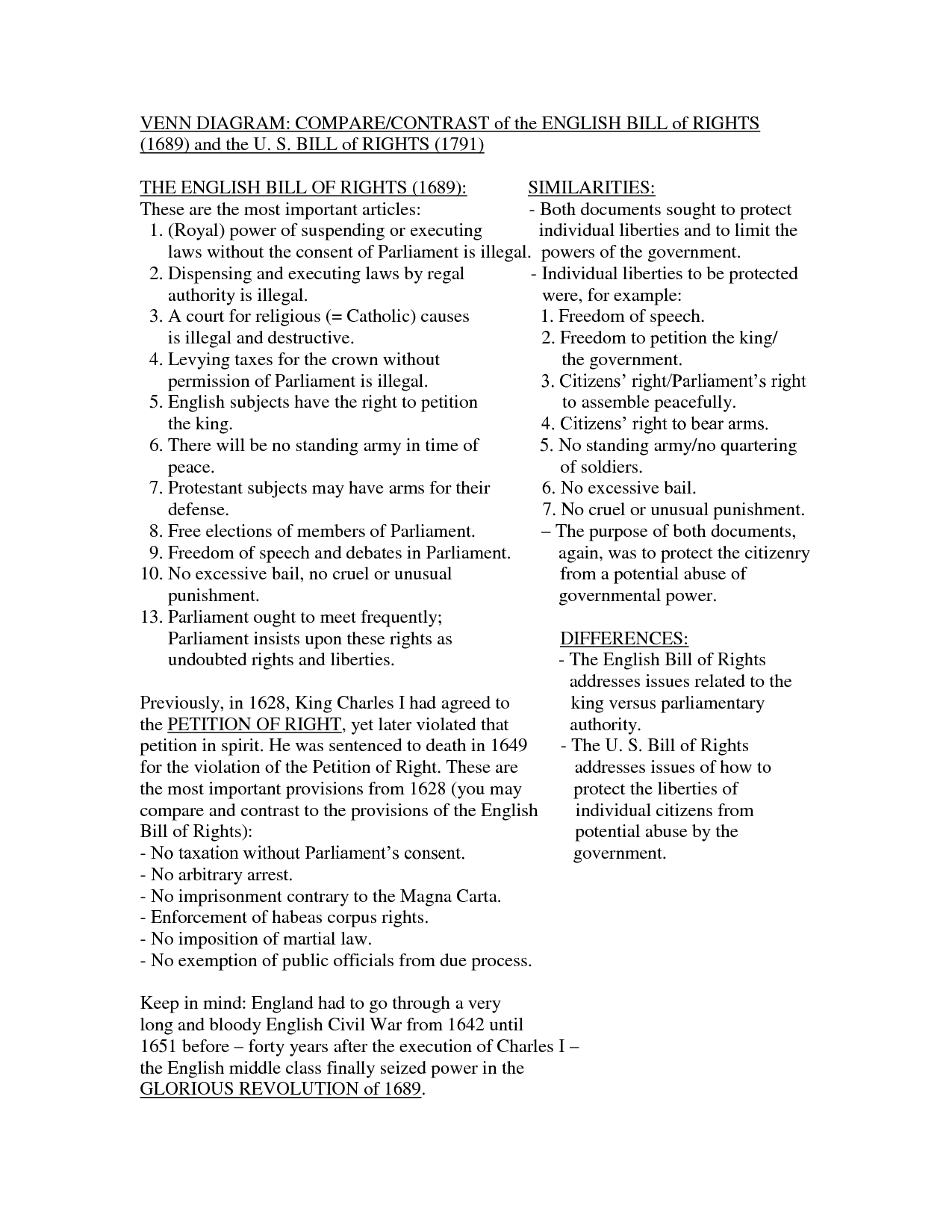



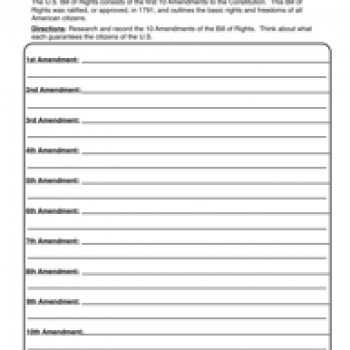
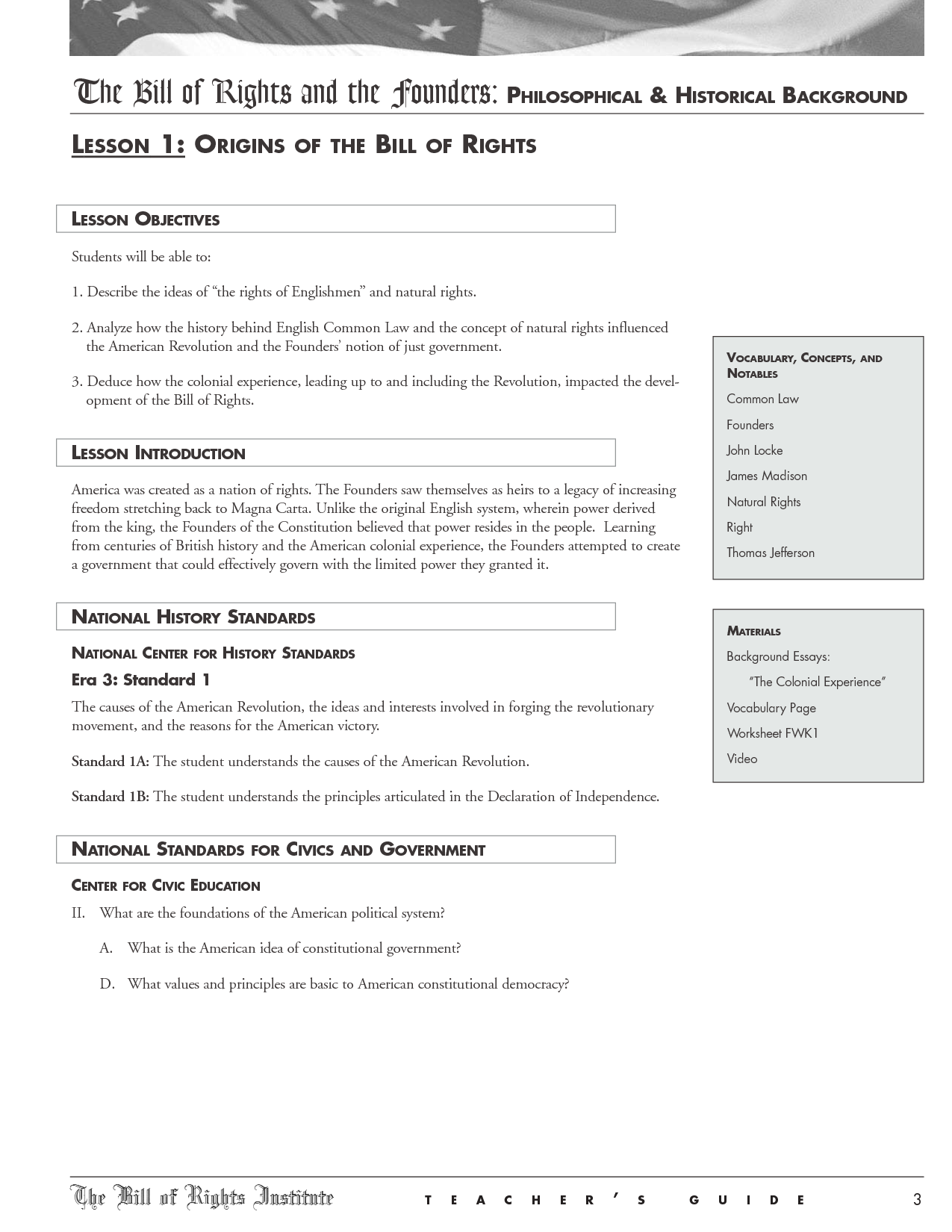
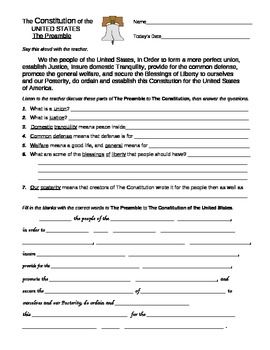
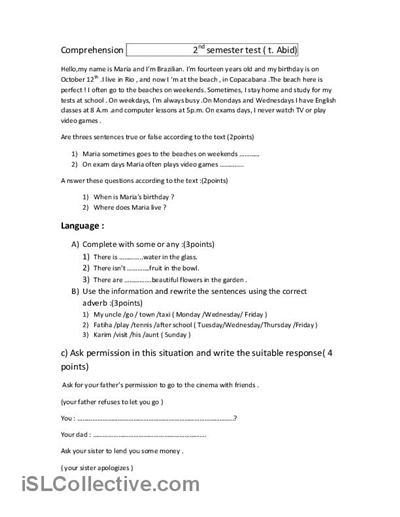
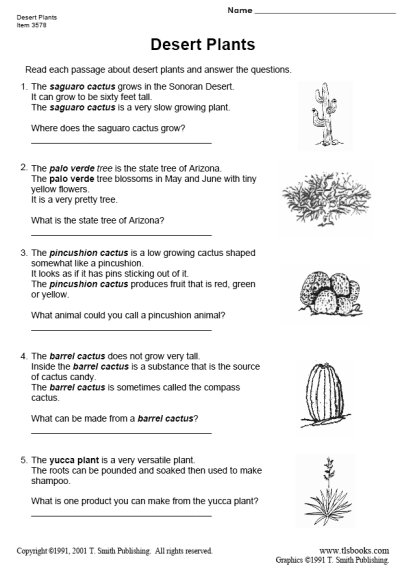
















Comments